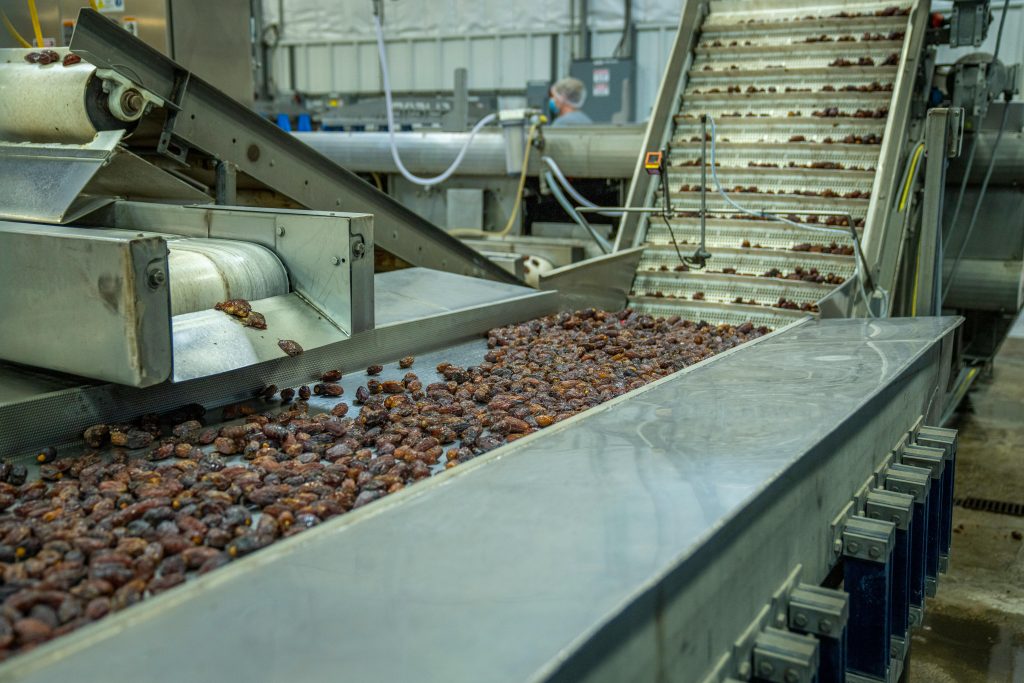In the complex and critical world of food processing, every step of the production process is under intense scrutiny. Filtration, often an unsung hero, plays a vital role in this chain. From maintaining the integrity of ingredients to safeguarding the final product, filtration is a linchpin in ensuring the health and satisfaction of the consumer.
In this guide, we will explore the importance of filtration in food processing, its role in ensuring safety and sustainability, and the different types of filters used in this industry.
The Crucial Role of Filtration in Food Processing
Filtration is the physical or mechanical separation of solid particles from fluids (liquids or gases) by interposing a medium through which only the fluid can pass. In the context of food processing, this method is indispensable for several key reasons:
Ingredient Purity and Consistency
The quality of food ingredients can vary greatly, and particulates can compromise the final product. Filtration steps at the beginning of food processing operations ensure that raw materials, such as juices or chemicals used for cleaning, are free from contaminants, resulting in a more consistent product.
Extended Shelf Life
By removing spoilage-causing substances like microbes and oxidized particles, filtration can significantly extend the shelf life of foods. This is especially pertinent for products like oils and beverages, where maintaining a clear and stable appearance is crucial for consumer appeal and confidence.
Waste Minimization
Proper filtration can make the most of every resource used during the food manufacturing process. By efficiently separating solids from liquids, waste is minimized, contributing to a lean and sustainable operation.
Understanding the Different Types of Filtration Methods in the Food Industry
The food industry employs a range of filtration methods, each suited to specific processes and materials. Here are some of the most common:
Mechanical Filtration
Mechanical filtration uses a barrier to intercept particles in the fluid. Methods include screening, where a mesh or a filter plate is used to trap solid components while allowing the liquid or gas to pass through. This type of filtration is straightforward and effective for removing larger particulates. It’s particularly useful in the initial stages of food processing, where ensuring the clarity and purity of liquids like oils, syrups, and dairy products is essential. The choice of screen material and the size of the holes in the filter plate are critical factors that determine the efficiency of mechanical filtration in removing unwanted particulates.
Centrifugal Filtration
This method applies centrifugal force to separate solids from liquids. It’s typically used for high-solids applications and offers efficient continuous operation.
Membrane Filtration
Membrane filtration uses a semi-permeable membrane to separate particles from fluids based on their size. This method is crucial for processes such as microfiltration, ultrafiltration, and reverse osmosis, each with different selectivity levels and application ranges.
The Importance of Filtration in Ensuring Food Safety and Quality
The consequences of a contaminated food product are severe, with potential impacts on public health and a company’s reputation. Filtration is the frontline defense against such outcomes, ensuring that food processing is a safe and quality-driven operation.
Microbial Stabilization
Pathogenic microorganisms are a significant hazard in food processing. Filtration techniques, especially those using micro and ultrafiltration membranes, can remove bacteria and viruses to ensure the microbial safety of products.
Chemical and Allergen Removal
Filtration is also critical for the elimination of chemical and allergenic contaminants. By using targeted filtration methods, manufacturers can support nutritional labeling accuracy and protect consumers against unintended exposure to substances that can provoke allergic reactions.
Consistent Texture and Flavor
Particulates can alter the texture and taste of a food product. By consistently removing these unwanted materials, filtration guarantees that consumers enjoy consistent quality across batches.
Sustainability in Food Processing: How Filtration Contributes
The food industry’s commitment to sustainability is growing, with filtration technologies playing a significant role in achieving environmental objectives.
Energy Efficiency
Modern filtration systems are designed to operate at high efficiencies, minimizing the energy required to power pumps and drive cycles. This reduction is crucial for lowering the overall carbon footprint of food processing operations.
Water Conservation
Filtration is integral to water purification and recycling initiatives. By reclaiming and treating process water more effectively, food manufacturers can conserve this vital resource and reduce their freshwater intake.
Waste Reduction
By ensuring that solids and semi-solids are separated from liquids, filtration helps in the recovery of valuable by-products and minimizes the volume of waste that requires disposal.
Innovations in Filtration Technology for the Food Industry
The field of filtration is not stagnant, with technology continuously evolving to meet the food industry’s stringent demands. Here are some of the exciting innovations:
Nanofiltration
Nanofiltration is a relatively new method that operates on a smaller scale than traditional filtration. It’s capable of creating products with unique compositions and has the potential to revolutionize the production of functional foods and beverages.
Smart Filtration Systems
These advanced systems use sensor technology and machine learning algorithms to monitor and adjust the filtration process in real-time, leading to enhanced efficiency and adaptability.
Movable Filtration
Mobile or portable filtration units are becoming increasingly popular in the food industry, particularly for smaller manufacturers. These units are cost-efficient and can be moved to various locations within a facility to respond to changing production needs.
Conclusion
Filtration is a vital process in the food industry, playing a crucial role in food safety, quality, and sustainability. With advancements in technology and constant innovation, filtration will continue to be an essential aspect of food processing, helping manufacturers meet consumer demands for safe and high-quality products. So, the industry must stay updated with the latest filtration methods to ensure efficient and sustainable operations.

